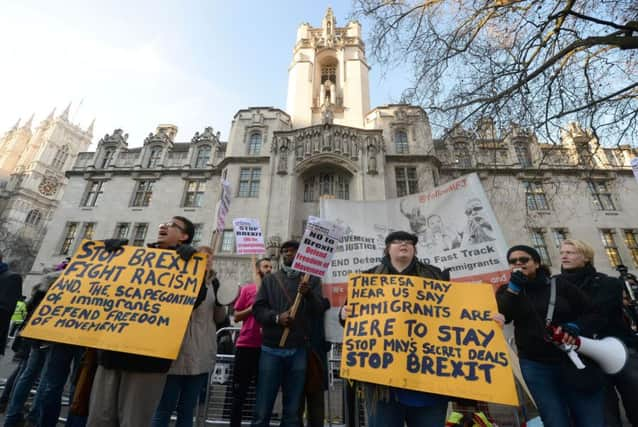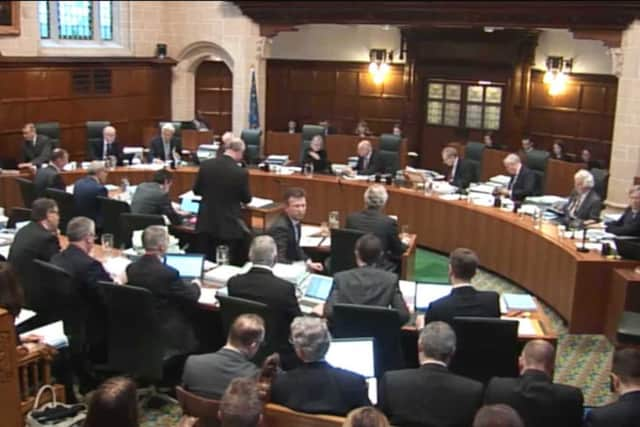Q&A: Ministers urge judges to overturn Brexit ruling


Eleven Supreme Court justices - a record to hear an appeal - are hearing the challenge over the country’s Brexit strategy, which has attracted world-wide attention from the media and public.
The hearing will be the most televised UK case ever, with the proceedings streamed on the Supreme Court website and broadcast on television.
Advertisement
Hide AdAdvertisement
Hide AdIn a decision on November 3 that infuriated Brexiteers, three High Court judges said Theresa May lacked power to use the royal prerogative to trigger Article 50 of the Lisbon Treaty and start the two-year process of negotiating Brexit without the prior authority of Parliament.


Now the justices are to have their say regarding one of the most important constitutional cases in British legal history.
The Government’s top law officer, Attorney General Jeremy Wright, told the justices that the case was of “great constitutional significance in which there is understandable and legitimate interest both inside and outside this courtroom”.
James Eadie QC, also representing the Government, described the prerogative as “a long-standing, well-recognised set of powers firmly established in our constitutional arrangements” which were “fundamental to our constitution and essential to effective government”.
Advertisement
Hide AdAdvertisement
Hide AdLord Neuberger is leading a panel including Lady Hale, Lord Mance, Lord Kerr, Lord Clarke, Lord Wilson, Lord Sumption, Lord Reed, Lord Carnwath, Lord Hughes and Lord Hodge.


In his opening remarks Lord Neuberger stressed the court was aware of the “strong feelings associated with the many wider political questions surrounding the United Kingdom’s departure from the European Union” - but those questions were not the subject of the appeal.
Brexit Secretary David Davis is leading the Government’s historic legal action. His team of lawyers, headed by Mr Wright, will argue in the four-day hearing that the three High Court judges erred over Article 50 and its use was legally justified by the June 23 referendum vote in favour of quitting the EU.
Q&A: Brexit goes to the Supreme Court
• What is the issue?
The panel is being asked by the Government to overturn a High Court ruling that the Prime Minister must seek MPs’ approval to trigger the process of taking Britain out of the European Union.
• Who is presenting the case for the Government?
Advertisement
Hide AdAdvertisement
Hide AdThe Government’s top law officer, Attorney General Jeremy Wright, will be arguing the case for quashing the High Court decision.
• What will he argue?
The justices will be asked to find that the High Court “erred” in its ruling, and that it is for the Government to exercise prerogative powers in the conduct of the UK’s affairs on the international plane.
• Who else will be presenting arguments?
The justices will hear from a wide range of parties, including the Scottish and Welsh Governments and from Northern Ireland.
• How long will the case take?
The legal submissions will be heard over four days.
• When will there be a ruling?
Not until the new year.